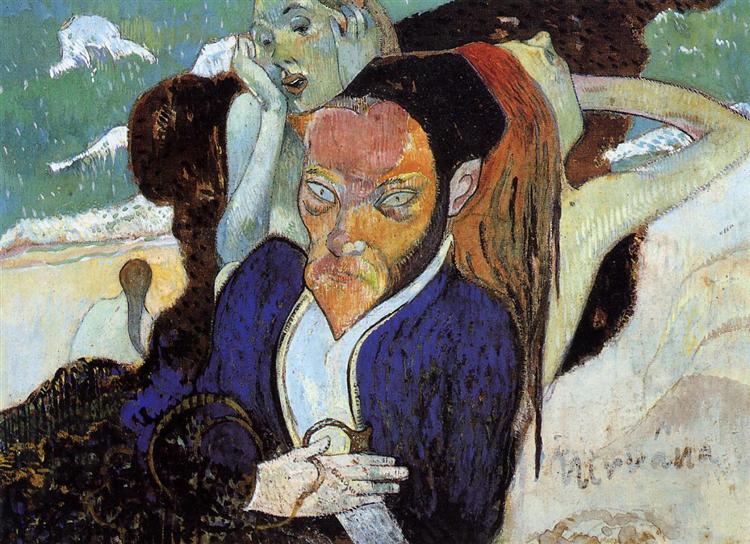Description
The work "Nirvana - Portrait of Jacob Meyer by Haan" by Paul Gauguin, painted in 1890, is a remarkable exemplification of post -impressionist style. This portrait, which focuses on the friend and colleague of the artist, Jacob Meyer of Haan, offers an intimate vision of the personal and professional relationship they shared. Gauguin, known for his break with realism and his search for the symbolic and spiritual in art, achieves in this work synthesize his own emotional and philosophical journey through the use of color and shape.
When contemplating the painting, we find a representation of the portrayed that seems to be immersed in a state of meditation or Nirvana, capturing not only its physique, but also a mental and spiritual state. MEYER DE HAAN is in an environment that seems to evoke an atmosphere of introspection, accentuated by the choice of a palette of soft colors, which includes deep terrible and blue tones. The way Gauguin handles color is not simply an aesthetic choice; It is an emotional expression that invites us to enter the subject's inner world, a distinctive characteristic of the artist's work.
The composition of the painting reveals an almost symbolic approach to the representation. The brush strokes are firm and expressive, creating contours that cautiously define the model. Meyer de Haan is presented half -body, on the side, which grants a dynamism to the image and, at the same time, a sensation of closeness. His gaze, although apparently focused on distance, seems to suspend the viewer at a time of shared reflection. Gauguin suggests that transcendence is found not only in childhood and purity, but also in maturity, in the experience of the lived, and this idea materializes in the representation of his friend.
The plant background reinforces the symbolism that permeates the composition; The greenish and abstract forms seem to linked with the body of the portrayed, suggesting an intrinsic connection between Meyer de Haan and nature. The lines of fluid vegetation also contrast with the most straight and most defined lines of the human body, accentuating the duality between the natural and the personal, between the spiritual and the tangible. This resonates with Gauguin's constant search for the merger of the earthly with the divine.
The interest of this portrait also lies in its artistic context. Paul Gauguin, who turned away from the impressionist movement, was deeply influenced by spiritualist and symbolist ideologies that sought to represent a world beyond the visible. In "Nirvana", Gauguin moves within this frame .
Finally, "Nirvana - Portrait of Jacob Meyer de Haan" is at a crossroads between the traditional portrait and the modern exploration of the human being. The work is not only a reflection of the portrained figure, but it is also a testimony of Gauguin's search for meaning and emotional connection, taking us to a point where aesthetics becomes introspection, where art is both a mirror of the soul as a window towards transcendence. This piece, although less known in the canon of Gauguin's work compared to its Tahiti landscapes, remains an outstanding example of its unique approach and its enduring legacy in art history.
KUADROS ©, a famous paint on your wall.
Hand-made oil painting reproductions, with the quality of professional artists and the distinctive seal of KUADROS ©.
Reproduction service paintings With a guarantee of satisfaction. If you are not completely satisfied with the replica of your painting, we refund your money 100%.

